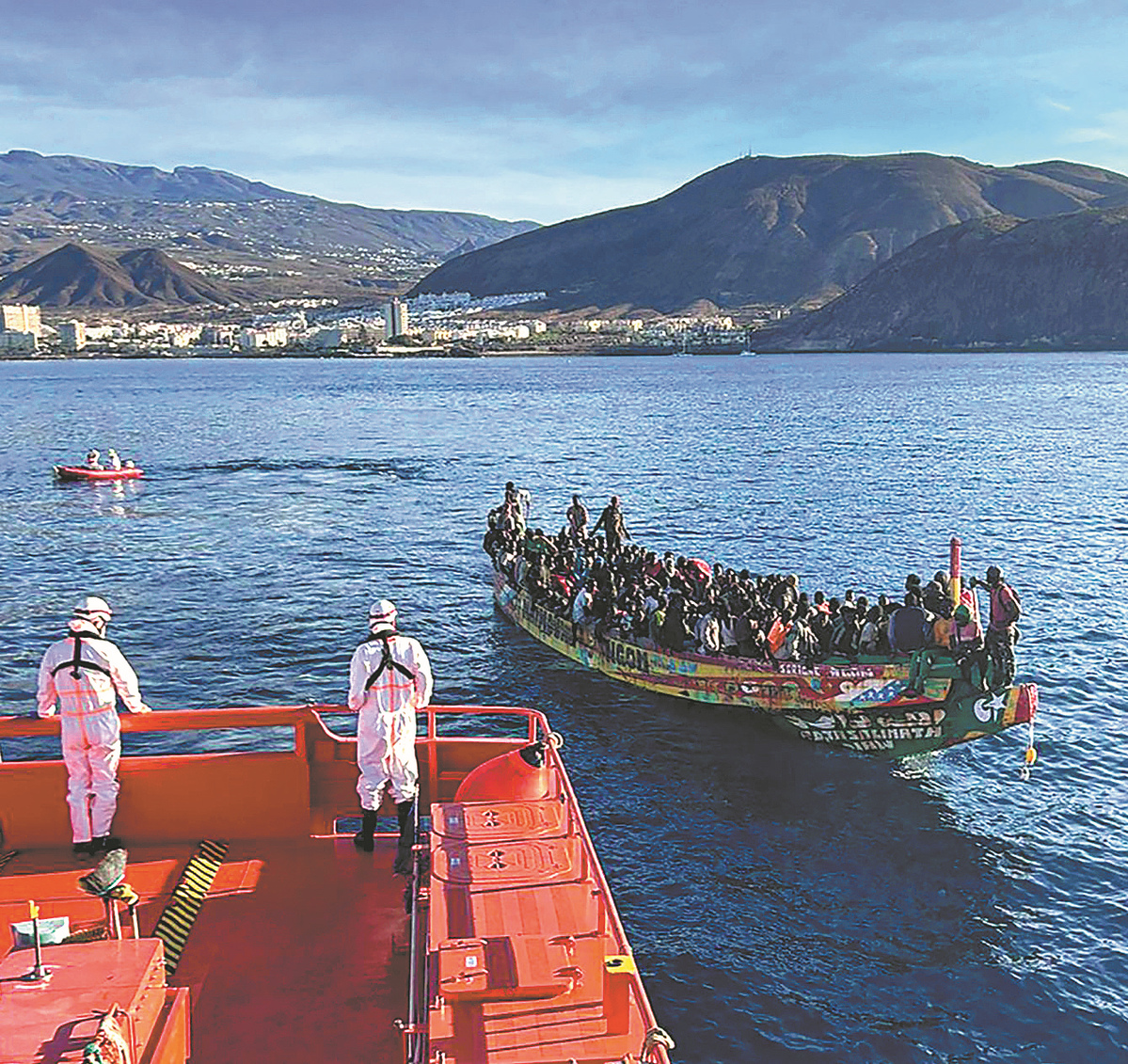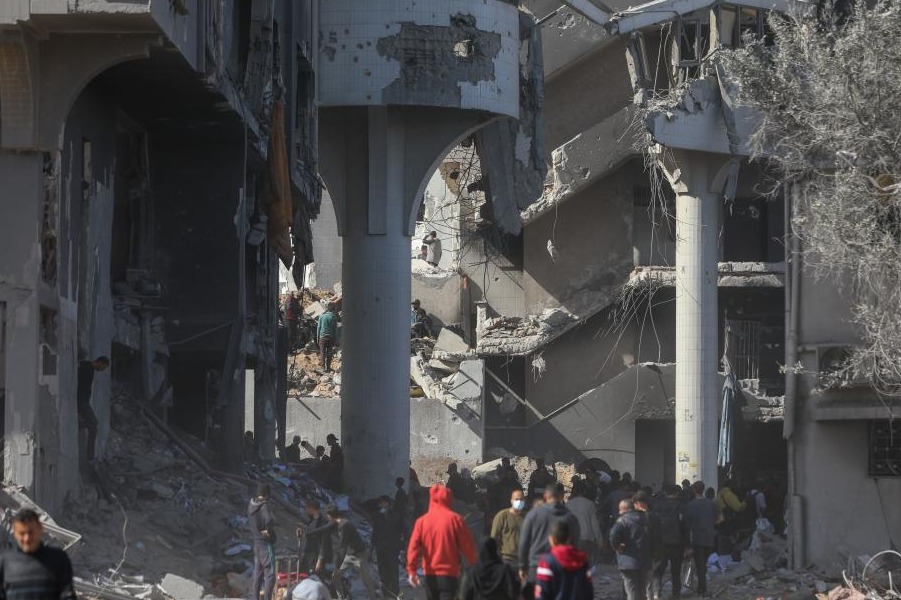Steps urged to solve EU refugee crisis
By YANG RAN | China Daily | Updated: 2023-11-01 09:45

European nations are urged to have a responsible attitude and effective measures to solve the refugee problem, an expert said.
While facing social, economic and political pressures and challenges brought by a huge influx of asylum-seekers, some European countries are changing their attitudes and becoming tougher on refugees.
According to data from the European Union's Agency for Asylum, EU+ countries, or the 27-nation EU plus Norway and Switzerland, received 519,000 applications for asylum in the first half of this year. Based on current trends, applications could exceed 1 million by the end of this year, close to record 2015 and 2016 levels.
But compared with 2015, the attitude of European countries toward asylum-seekers has changed.
German politicians, recognized for their open-door approach during the 2015 migration crisis, have started seeking methods to control unregulated immigration.
On Oct 25, the German government approved a draft law extending the maximum duration of pre-deportation custody from 10 to 28 days, in order to accelerate the deportation of rejected asylum-seekers.
"It is important to me that the federal government, the states and the opposition come to joint agreements to noticeably reduce irregular migration to Germany," German Chancellor Olaf Scholz said in a letter to opposition leader Friedrich Merz, Reuters reported.
"The citizens of our country rightly expect the number of those who come to us without the right to stay to fall quickly and significantly."
Germany used to be quite willing to accept refugees, as the country needs a boost to its labor force, said Zhao Yongsheng, a professor at the Institute of Regional and International Studies at the University of International Business and Economics in Beijing. "Although the labor gap still exists now, Germany's attitude toward migrants has changed significantly," he said.
"In the past eight years, Germany has seen many problems in the process of accepting refugees, failing to effectively integrate them into society. The rising rate of crimes like theft and robbery has stirred growing discontent among the public. With some states in Germany due for elections next year, the government will take tougher actions on this issue to win voters," Zhao said.
Tougher stand
Apart from Germany, many other European countries have also taken a tougher stand on rising migration.
The UK government announced on Oct 24 that it will reduce the number of hotels housing asylum-seekers to deter them from coming.
During periods of economic downturn, right-wing parties that normally strongly oppose immigration are more likely to come to power, Zhao said. "The political climate in European nations is now shifting toward the right, which means European nations are likely to continue hardening their stance on issues related to migrants and refugees."
During the parliamentary election in Switzerland in October, the right-wing Swiss People's Party won more seats, cementing its place as the biggest group in the parliament's lower house.
"Swiss politics has shifted rightward," Cloe Jans from pollsters GFS Bern told Reuters. "Migration has been more of an issue, which has helped the Swiss People's Party significantly."
The migration problem not only affects the domestic affairs in European nations, but it also has an impact on the EU level.
EU countries such as Germany, Austria and Italy have recently imposed border controls with other member states, suspending free movement in the EU's frontier-free Schengen Area.
"Such moves are not conducive to solving the irregular migration problem, and it is not helping to form a long-term sustainable solution," Zhao said. "To solve the problem fundamentally, effective cooperation mechanisms and standards on irregular migration management should be established on the EU level collectively."
On Oct 4, EU member states' representatives reached an agreement on the final component of a common European asylum and migration policy, including the instrumentalization of migration, and force majeure in migration and asylum.
But this hastily reached agreement risks leaving people stranded or detained along Europe's borders, Zhao said.
Agencies via Xinhua contributed to this story.
























